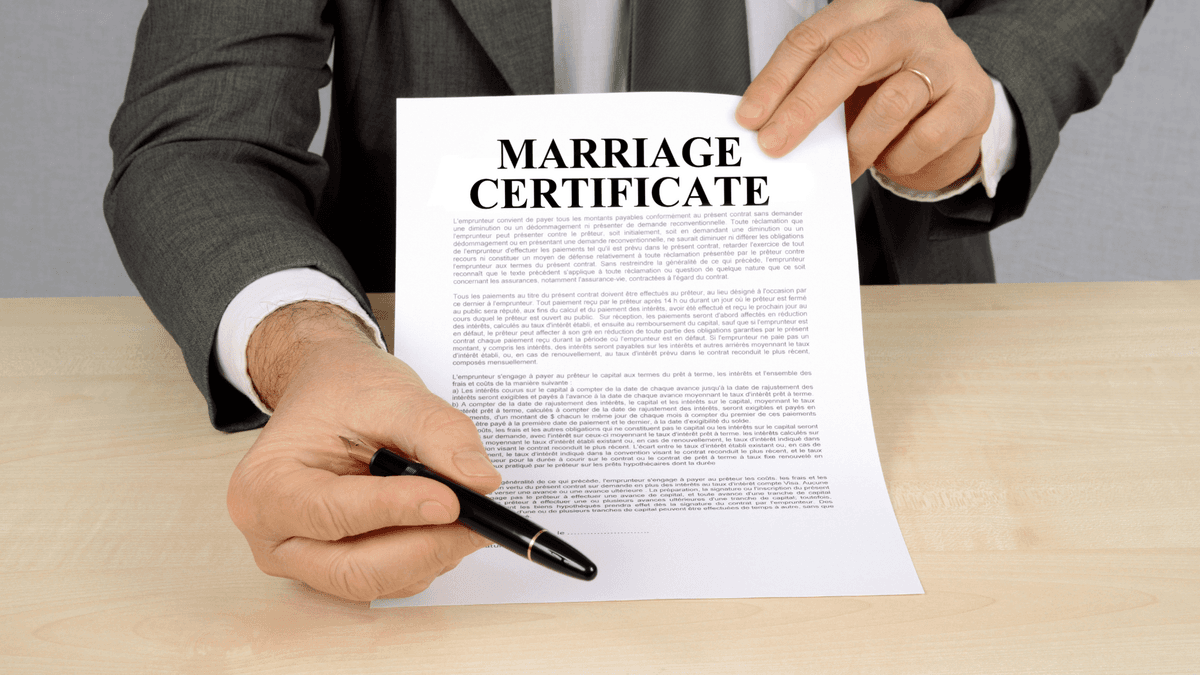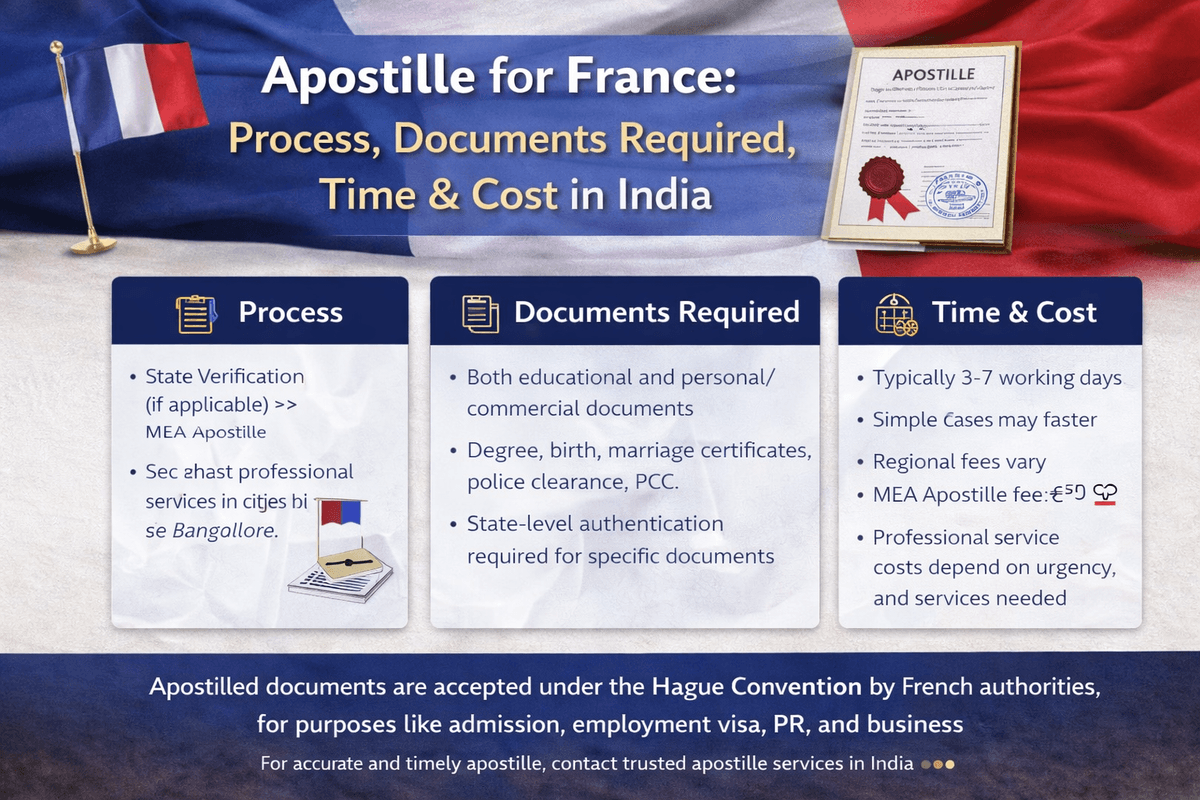
Everything You Need to Know About Apostille of Educational Certificates
If you're planning to study, work, or migrate abroad, one of the key requirements you might encounter is getting your educational certificates apostilled. Apostille of educational certificates is a crucial step in validating your academic qualifications for international recognition, especially if you are moving to a country that is a member of the Hague Convention of 1961. This process ensures that your documents are legally accepted in foreign countries without the need for further verification. Here's everything you need to know about the apostille process for educational documents.
An apostille is a certificate issued by a designated authority, confirming that a public document such as an educational certificate is genuine and can be accepted in another country. The concept of an apostille was introduced under the Hague Convention to simplify the legalization process among member countries. With an apostille, your educational certificates become legally valid for use in over 100 countries that are signatories to the Hague Convention.
The types of educational certificates that can be apostilled include degree certificates, diploma certificates, higher secondary and secondary school certificates, and transcripts or mark sheets. These documents are usually required by foreign universities, employers, immigration authorities, or other government institutions.
The apostille process typically involves several steps. First, the document must be authenticated by the relevant State Education Department or HRD (Human Resource Development) department in the state where the document was issued. This step confirms that the certificate is genuine and was issued by a recognized institution. After the state-level verification, the document is submitted to the Ministry of External Affairs (MEA), which is the central authority responsible for issuing apostilles in India.
Once the MEA verifies the document, it places a unique apostille sticker or stamp on the back of the original certificate. This apostille contains details such as the name of the person signing the document, the capacity in which the person has acted, the seal or stamp of the authority, and the date and place of the apostille. This sticker makes the document valid for use in all Hague Convention countries.
In recent years, the MEA has streamlined the process by introducing e-apostille services, which make it easier for applicants to obtain apostilles without physically visiting government offices. However, the state-level authentication is still a mandatory step and may take several days, depending on the state's internal processing time.
The cost of apostille services in India varies depending on whether you opt to do it yourself or use a professional apostille service provider. If you choose to handle the process independently, you might only have to pay the government fees, which are relatively nominal—generally around INR 50 per document for MEA apostille. However, state-level authentication may involve additional charges.
On the other hand, professional apostille service providers offer end-to-end assistance, including document collection, state authentication, MEA apostille, and delivery. These services typically charge anywhere between INR 1,000 to INR 3,000 per document, depending on the type and urgency. While the cost is higher, many applicants find it convenient to use these services to avoid long wait times, bureaucratic delays, and confusion.
It is important to ensure that your educational certificate is in good condition and contains all required details such as your name, course, institution name, and seal of the issuing authority. Any discrepancies or damage to the document can result in rejection or delay in the apostille process. It is also advisable to keep both the original and a set of clear photocopies for your reference.
Before starting the apostille process, it's a good idea to check the specific requirements of the country you are going to. While apostille is generally sufficient for Hague Convention countries, some may still ask for additional documentation or notarization. For example, if you're applying to a university abroad, they might ask for an academic transcript, a letter of recommendation, or a syllabus outline in addition to your degree certificate.
The timeframe for completing the apostille process can vary significantly. State-level authentication can take anywhere from a few days to a couple of weeks, depending on the workload and efficiency of the local authorities. MEA apostille, once the document has been authenticated by the state, is usually completed within 2 to 3 working days. However, if you're using a service provider, they might expedite the process and deliver the apostilled document within 7 to 10 business days.
Apostille of educational certificates is a one-time process and does not have an expiration date, making it a long-term solution for document legalization. However, you should be aware that some foreign institutions or authorities might require recently apostilled documents, especially for time-sensitive applications like university admissions or work permits. In such cases, even if your document was apostilled a few years ago, you might be asked to get a fresh apostille.
There are also specific challenges that one might face during the apostille process. One common issue is dealing with unrecognized institutions or certificates with missing details, which can lead to rejection at the state or MEA level. It's crucial to ensure that your documents are issued by UGC or AICTE-recognized institutions and are complete in all aspects.
For those who have completed their education from a private or unrecognized institution, getting the certificate apostilled may not be possible. In such cases, you may need to consult the respective foreign authority for alternative documentation or procedures.
Security and authenticity are paramount during this process. Always ensure that you are dealing with authorized service providers or directly with the concerned government departments. Avoid intermediaries or unauthorized agents who may offer quick services at suspiciously low costs—they often result in document fraud or procedural delays.
With globalization and increased mobility, apostille of educational certificates has become a routine necessity for students and professionals. Whether you're planning to pursue higher education abroad, take up an international job opportunity, or migrate to a new country, getting your educational documents apostilled is a crucial step that should not be overlooked.
To conclude, apostille of educational certificates is an essential legal process that validates the authenticity of your academic credentials for international use. The process involves verification from state and central authorities, culminating in the issuance of an apostille by the Ministry of External Affairs. Understanding the procedure, knowing the costs involved, ensuring the accuracy of your documents, and using professional help if needed can make this process smooth and hassle-free. As global opportunities expand, having your educational certificates apostilled is not just a formality, but a gateway to your academic and professional future overseas.
- All
- Apostille
- Attestation
- Australia Apostille
- Austria Apostille
- Bahrain Attestation
- China Attestation
- Egypt Attestation
- France Apostille
- Germany Apostille
- HRD
- Italy Apostille
- Kuwait Attestation
- Lithuania Apostille
- MEA
- Malaysia Attestation
- Mexico Apostille
- Netherlands Apostille
- Nigeria Attestation
- Oman Apostille
- PCC
- Philippines Attestation
- Qatar Attestation
- Saudi Arabia Attestation
- Taiwan Attestation
- Translation
- UAE Attestation
- UK Apostille
- USA Apostille
- Vietnam Attestation
- Visa Stamping




